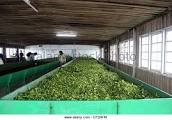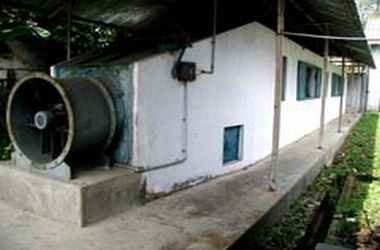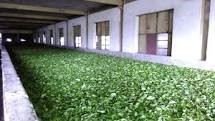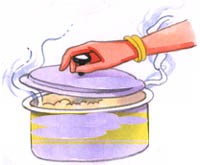| Article Section | ||||||||||||||||||||||||||||||||||||||||||||||||
Enclosed withering trough to wither tea leaves is energy saving and pollution reduction |
||||||||||||||||||||||||||||||||||||||||||||||||
|
||||||||||||||||||||||||||||||||||||||||||||||||
Enclosed withering trough to wither tea leaves is energy saving and pollution reduction |
||||||||||||||||||||||||||||||||||||||||||||||||
|
||||||||||||||||||||||||||||||||||||||||||||||||
Sources of some of information used are: http://www.tocklai.net/activities/tea-manufacture/withering/ - TEA RESEARCH ASSOCIATION https://www.articles/SC000021733 Journal of Biosystems Engineering 2016; 41(4): 365-372. http://www.pcra.org/pages/display/41-Make-Gas-and-Kerosene-last-longer/20 Appendix I to Income Tax Rules, 1962 – depreciation table. Withering process:Withering process is first major process in tea factory. It is required to make any kind of tea like Orthodox tea (leaf tea), CTC tea (granule tea). In this process, leaves are withered to reduce water content of green tea leaves at desired level. Only after this process, other processes to manufacture different kind and grades of tea are carried out.For this process, heated air is generated by using heaters, heated air is stored and spread over leaves by using fans. The process is such that fresh green tea leaves which have higher water content is reduced by applying heat treatment of desired type, in desired manner and with proper care. Therefore, withering is a kind of heat treatment to reduce water content of tea leaves to desired level to make them suitable for next process of rolling (for orthodox – leaf tea) and CTC for Granule tea (danedaar Chay).We find that various systems, like trough withering, tunnel withering, tat withering, and drum withering systems have been in use from time to time. However, in present days, in India, the trough withering system is most commonly used in tea manufacturing factories. Mainly two types of trough, open trough and enclosed trough, are commonly used. Open withering trough – tea bed picture:
As the name suggest, open withering troughs are open in the sense that leaves trough , troughs / trays are in open place – it is open on four sides, bottom side is covered by foundation and platform for tea bed, on top side it is open , and more open space is between tea leaf bed and roof. Leaves are spread at a given thickness and air is blown upwards from the bottom of the perforated bed. This results in the wither of the bottom layer of the leaf first. To wither upper layer fans need to be periodically reversed. Therefore, fan motor in case of open troughs is provided with facility for reversing the direction of rotation by means of a reversing switch. However, during the reverse rotation or the suction mode of fan operation, the fan efficiency is drastically reduced by about 40% to about 60% in comparison to front movement of air. This also require more heated air to be generate. Therefore consumption of power is more. Enclosed withering trough
Enclosed withering trough - tea bed picture:
As the name suggest, Enclosed troughs are enclosed from all sides. In the picture other sides are not depicted. Tea beds are thus in closed environment by raising the sides of the withering troughs and using a cover on top of the bed. This is designed to create a plenum chamber on top of the leaf bed as well. In this case the fan is always made to blow air only in the forward direction and air can be made to pass either from top to the bottom or from bottom to the top with damper and shutter control at the air entry and exit points respectively without reversing the direction of the fan. Since handling of leaf is less, the chance of leaf damage in enclosed trough is much lower. The leaf also enjoys some isolation from the sudden variations in ambient atmospheric conditions. It is, however, more convenient to load and unload leaf in the open troughs and it is easier to check the progress of wither. As can be seen from picture and descriptions of enclosed withering trough, it is a closed system. Heat generated from heaters (which are outside the chambers for leaves) is flown in enclosed chambers to dry up leaves at desired level in desired manner. Difference between open and enclosed withering trough and factors of energy saving and pollution control in enclosed withering troughs
Examining aspect of fuel/ energy/ power saving in an enclosed withering trough The simple rule to conserve energy is that there should not be wastage of energy in any form including heat energy used for cooking, heating, or doing any other process. In comparison to open withering trough with help of studies by pcra (Petroleum Conservation Research Association). http://www.pcra.org/pages/display/41-Make-Gas-and-Kerosene-last-longer/20 Outlines for fuel saving from above webpage analysed in comparison to enclosed withering trough: Do you know that housewives can save up to 30% of cooking gas or kerosene by following a few simple ‘fuel–saving tips’? Remember
Put the lid on heat losses It is a good practice to cover cooking vessels and pans with a lid, as an open vessel loses heat to the atmosphere which means a waste of fuel. A vessel of 100sq.cm. opening, containing hot water at 96°C would waste 7.2 GMs Of gas per hour. The heat loss would increase by 2-1/2 times if there is wind blowing through the kitchen. If the vessel is covered by a lid , the heat loss would drop appreciably to 1.45 gm. Of gas per hour as heat is retained within the vessel. (Note by assessee: this makes out difference between open and closed withering trough also) Pressure cooking (particularly with layered plates)saves fuel Remember Note: in enclosed withering trough also layered withering trays are used this is like separator in pressure cookers). A few minutes of planning ensures a big fuel saving. Light your stove only after you have kept all the ingredients within your reach and ready for cooking. Put off an idle flame at once. Use optimum quantity of water An experiment on cooking rice with double the required quantity of water has revealed that fuel consumption increased by 65% So use only the optimum quantity of water for cooking. Reduce the flame when boiling starts Experiments conducted have revealed a saving of 25% fuel when the flame was reduced after boiling had started. (note: In enclosed withering trough it is more practical to apply this by reducing heat) Shallow, wide vessels save fuel Hide the flame with broad bottomed, vessel. Do not use vessels which are narrow as they allow the flame to creep up on the sides. (note: In enclosed withering trough there is no loss of heat like flames in case of smaller bottomed pan) Rate of depreciation: Relevant portion from Appendix to I.T.Rules about energy saving devices and pollution control devices. Income-tax Rules, 1962 NEW APPENDIX I Effective from assessment year 2006-07 onwards [See rule 5] TABLE OF RATES AT WHICH DEPRECIATION IS ADMISSIBLE
(8) (ix) Energy saving devices, being A. Specialised boilers and furnaces : (a) Ignifluid /fluidized bed boilers (b) Flamaless furnaces and continuous pusher type furnaces (c) Fluidized bed type heat treatment furnaces (d) High efficiency boilers (thermal efficiency higher than 75 per cent in case of coal fired and 80 per cent in case of oil/gas fired boilers) 80% Observations: The entries in appendix to I.T.Rules are illustrative, because it is not possible to envisage all energy saving equipment, and pollution control and reduction equipment. There is always new Research, development, invention and application of experience in one industry in other industries. New equipment are designed, developed and used to reduce consumption of energy and reduce emission of heat, smoke and gases to reduce pollution. The word ‘being’ is not used with word ‘only’ The word ‘being’ has been used to suggest that the entries mentioned thereunder are definitely such equipment. However, there is nothing to suggest that these entries are exhaustive. Higher depreciation: As discussed above, Enclosed Withering Trough is a flameless heating equipment for drying green tea leaves. It is a flameless furnace / flameless oven and Fluidized bed type heat treatment furnaces. Fuels and power consumption is reduced by about 30- 60% depending on capacity of equipment and actual quantity of leaves processed. Usually enclosed withering troughs are built for higher capacity, because marginal cost is very low. As an incidental benefit pollution is also reduced for the following reasons: a. Lesser fuels are used therefore, pollution at stage of production and transportation or transmission of fuels is less. b. Lesser fuel consumption results into lesser as and heat emission. c. Heat is not lost in enclosed trough therefore there is no heat emission in environment as is found in case of open trough. d. Tea leaves are in enclosed chambers, therefore, interaction of leaves with open environment is less. Therefore, leaves does not come into contact with environmental impurities. e. More hygiene is in case of enclosed chambers as against open beds. f. Human intervention and handling is less, therefore, more hygiene is ensured. Taking into account overall picture of facts and circumstances and considering energy saving and pollution reduction, and high capital cost of such equipment’s, and applying purpose seeking and liberal approach for incentives, enclosed withering troughs are eligible for higher depreciation. As the main purpose is to reduce consumption of power and fuel and pollution reduction is a consequence, therefore reasonably higher depreciation on the basis of energy saving plant and machinery should be allowed on enclosed withering troughs. Author would like to mention that in some cases AO himself has allowed higher depreciation and matter has attained finality. In some cases / some year in case of same assessee higher rate was not allowed by AO, on appeal CIT(A) allowed, however, department has preferred appeal before Tribunal. This is a case of un-necessary litigation by department.
By: DEVKUMAR KOTHARI - July 12, 2017
|
||||||||||||||||||||||||||||||||||||||||||||||||
| |
||||||||||||||||||||||||||||||||||||||||||||||||
 9911796707
9911796707





